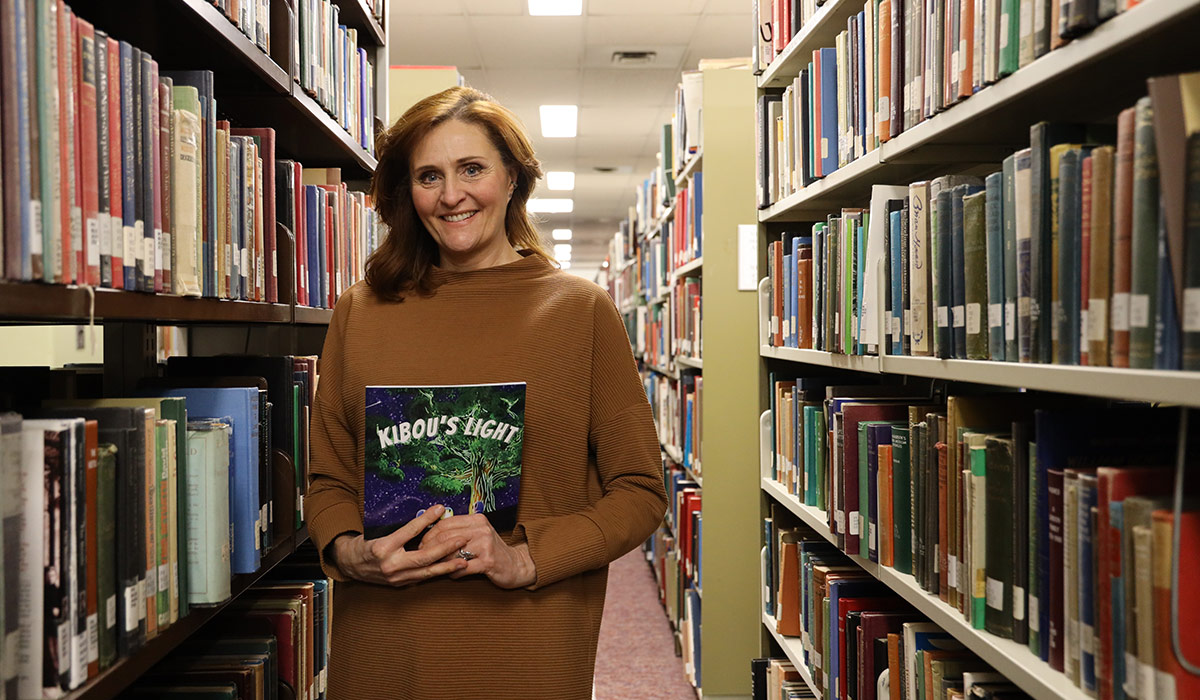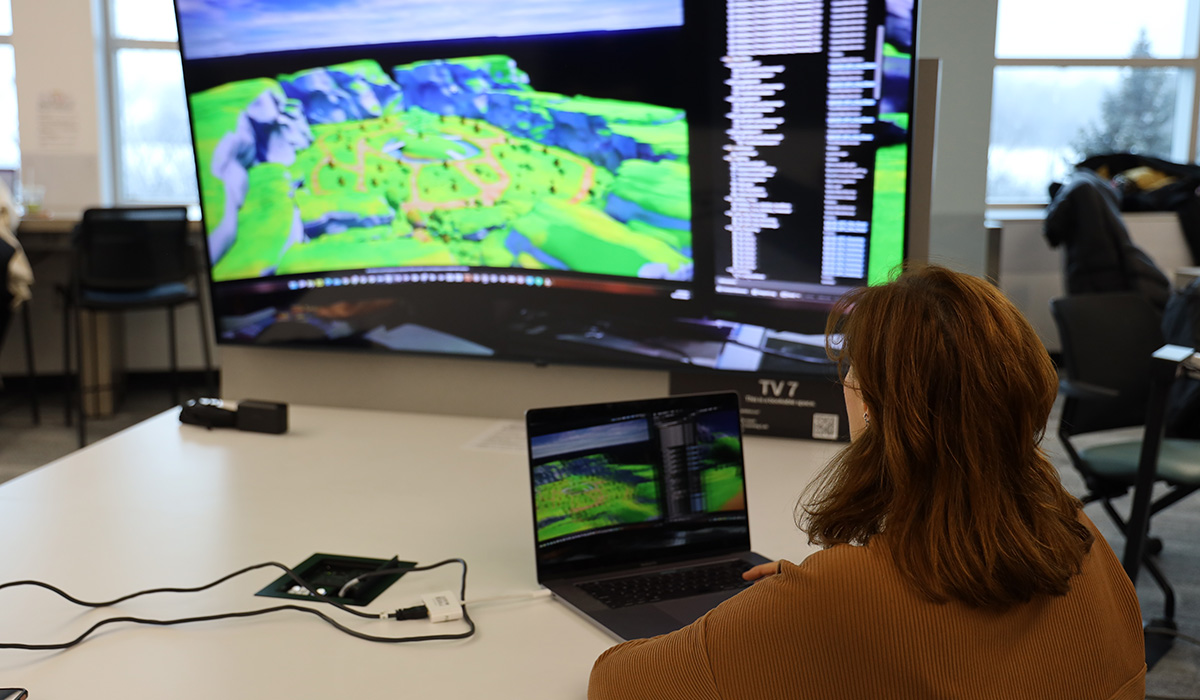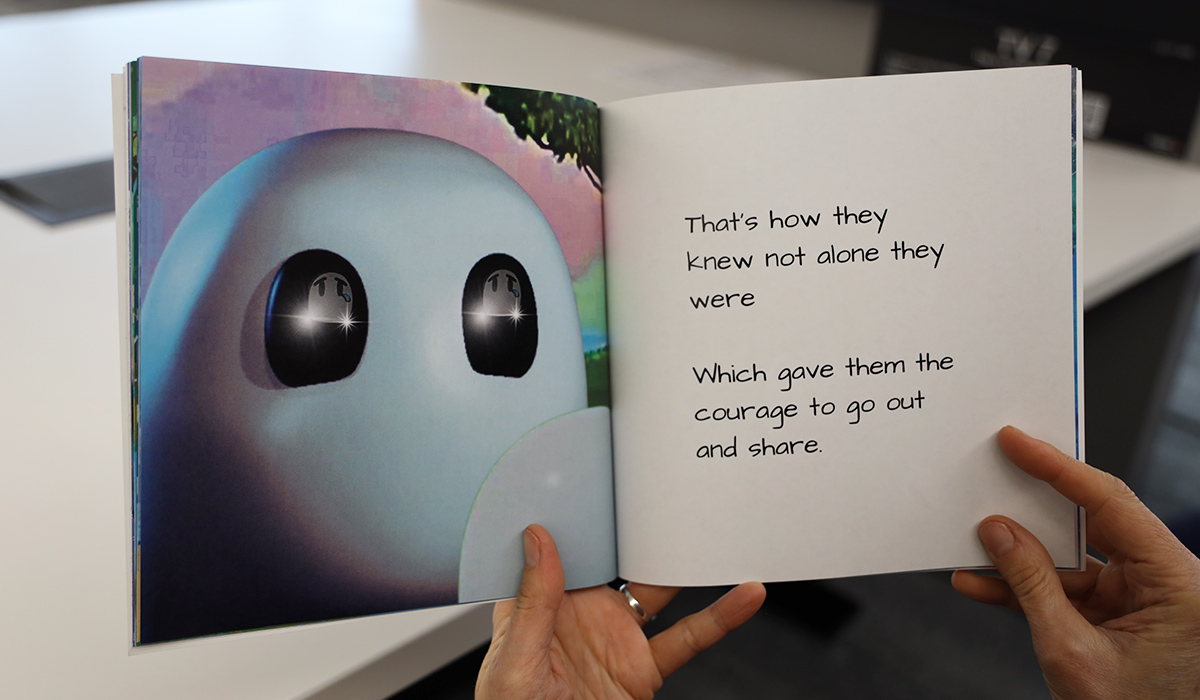Climate change has transformed from a distant concern to an urgent global crisis – drastically impacting ecosystems and human lives alike. Dominating conversations and news headlines, a recent study revealed that 78 per cent of Canadians aged 16 to 25 report adverse effects on their mental health due to climate change, as it causes widespread fear and sadness, particularly among youth.
Recognizing the need for a positive approach, Carleton University psychology professor Stefania Maggi has created an action-adventure video game designed to reduce eco-anxiety and motivate climate action.

“Every day, we have a reminder in the news that exposes us to shock,” Maggi says.
“It causes anxiety that if not addressed adequately, impacts our mental health and also our ability to be part of the solution to climate change.”
Eco-Anxiety and Grief Among Youth
Eco-anxiety is a relatively new school of thought that explores the deep emotional strain individuals face amid the escalating threats of climate change. The continuous onslaught of distressing news, coupled with a heightened awareness of impending ecological challenges, fosters a pervasive sense of helplessness and grief over the potential loss of a sustainable future.
“We grieve the future we may not be able to have because of climate change,” Maggi explains.
“But it’s important to feel this way. It’s not an imaginary problem, and the first thing we need to do is accept the problem as being real.”
Despite its unpleasant effects on people’s well-being, anxiety does have an evolutionary purpose. It acts as a mechanism to signal threats and prompt protective responses. The problem with climate change is that we can’t eliminate that threat immediately or on our own.
Youth are disproportionately affected by eco-anxiety because they have the longest lives ahead of them, and planning for their futures is muddied by a one-sided narrative of a world in distress due to climate change. This one-sided portrayal risks paralyzing them with fear and impeding their ability to envision alternative outcomes. To address this, Maggi says we need a shift towards solution-oriented communication, emphasizing the importance of presenting diverse future scenarios.
“By providing youth with the tools to envision positive outcomes and fostering a sense of agency, we can empower them to develop skills and solutions, mitigating the paralyzing effects of eco-anxiety and inspiring meaningful action in the face of climate change,” Maggi explains.
“Fear is a good motivator, but it needs to be followed up with something else.”
Mochi 4 the Planet
Maggi launched Mochi 4ThePlanet in 2022 as a movement to help re-frame the way we think about climate change. The project is made up of a mixed-methods research branch – which collects data on eco-anxiety and the effects on youth; a social media presence – which aims to mobilize knowledge and elevate spirits and conversations around climate change; and the video game – built to help youth navigate their emotions around climate change in a non-threatening way.
The video game, Kibou – The Guiding Light, is set in a tech-dominated city where relationships take a back seat. The protagonist faces a turning point during a blackout that severs ties with their friend, prompting them to explore the impact of climate change. Players navigate through mechanics, puzzles, and quests to discover emotions, interacting with characters who share insights about the planet.

The game follows Mochi4ThePlanet’s five tenets – Mindful, Optimistic, Compassionate, Healing, and Innovations – spelling Mochi. A reference to the Japanese rice cake crafted from moldable dough, Maggi says the project’s name is a symbol of adaptation and change.
“Kibou’s ultimate goal is to educate players about climate-related emotions, fostering understanding, normalization and the development of tools for expressing and coping with these emotions, emphasizing the importance of finding meaning and purpose in the face of adversity,” says Maggi.
Kibou is developed by an international team of young professionals. As a research-based youth-centered movement, Mochi4ThePlanet is partnered with organizations in Italy, India and Canada. In addition to the video game, the initiative has also published a children’s book within the game’s world – written by Maggi and McKenna Corvello, a master’s student in Carleton’s psychology program.
Maggi plans for Kibou to complete and the first instalment of a fully playable version by fall of 2024. She is also developing a Kibou-themed virtual reality educational program for the Carleton community and general public.
“My hope for Mochi4ThePlanet is to not only address eco-anxiety but to build a collective that is bound by shared meaning, motivation, and support.”
